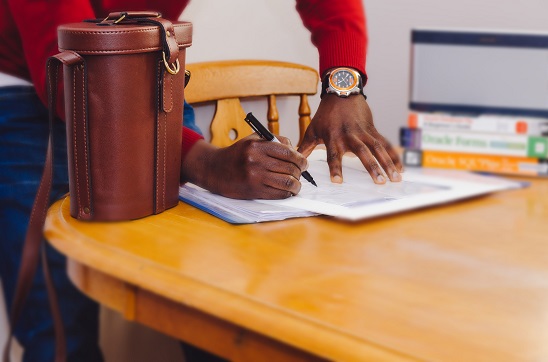
How to Stay Happy When Dealing with Change
How many of us are able to willingly accept change in our lives and move forward with no reservation? How easily do we manage unexpected changes without letting them affect our attitude and outlook? Although it has been challenging, I have found that by learning to deal with change, I am able to more easily navigate the ups and downs in my life and remain happier through the process.
There are two types of changes that we will encounter in life. There are the changes that we choose, and there are the changes that are thrust upon us. When we consciously choose to make a change, such as entering a new relationship, starting a new job, or moving to a new town, we hopefully do so with enough information to prepare as best as we can for what we will be facing. Hopefully it is a change that we are excited and happy about, and that we are looking forward to. However, when we encounter an unexpected change that we did not plan for and would not have chosen willingly, the process is typically much more difficult to deal with. These are the types of changes that we need to learn to accept in order to sustain our happiness.
In December of 2011, my life changed suddenly and unexpectedly. I suffered a seizure, the first and only one I have ever experienced, while I was driving on the freeway. I hit my car into the railing, but luckily I hit no other cars and did not injure anyone. I also did not suffer any injuries myself. It was a miracle that there was so little physical damage. After spending a night in the hospital, the doctors found nothing wrong with me. Physically, I was still exactly the same. But my life had changed in so many ways.
Because the doctors could not find a cause for the seizure, I was extremely scared that I might have another one. I stopped driving and became obsessed with looking for any signs that could help me to predict when I was going to have one again. My doctors assured me that if I was seizure-free for six months, I would be able to start driving again with no concerns. But then, at the five month mark, I received a letter from the state informing me that my driving privileges had been revoked indefinitely.
Right after receiving the letter, I panicked. I didn’t know how I was going to be able to keep working if I could not drive. I didn’t know how I was going to be able to keep doing anything that I did as part of my normal life. The stress was such that I gained 15 pounds in two weeks. I felt completely overwhelmed and allowed this one event to affect practically every aspect of my life, including (and most importantly) my happiness.
Eventually I formed an action plan. I hired a lawyer to help me get my license back. I started commuting to work with a coworker who lived nearby. I started working out again and stopped stress eating. With my action plan in place, I slowly was able to accept the changes that had taken place and learn to live with them. It wasn’t easy, but by doing so I was able to regain my happiness in spite of the unexpected changes that were happening in my life.
I learned a lot during that time. The most important lesson I learned was that if I am able to accept change and adjust to it, I can maintain emotional balance. I can keep events from negatively affecting unrelated aspects of my life. I can protect my happiness.
Here are the steps that I learned to take to deal with change and adjust to the unpredictability of life.
Avoid negative thoughts
When an unexpected change happens, it is human nature to automatically be resistant and opposed to it. We all like predictability in our lives. It takes effort to not automatically have a negative emotion in response to a sudden change.
Do your best to not make any rash judgements or form any immediate opinions. Try to remain positive and optimistic. It will make it much easier to proceed through the next steps in the process.
Evaluate the situation
Take the time to properly evaluate the situation that has been created by the change you have experienced. Explore all the possibilities that are available to you. Make sure that you don’t judge or make any decisions at this stage. Look at your situation objectively and be open to all possibilities.
Do proper research to address a situation that is new to you. Ask the advice of those who are more experienced than you are. When I found out that I was losing my driver’s license, I contacted a friend of mine who is a lawyer. He referred me to a former professor of his who taught a course on how to use expert medical witnesses in legal cases. As part of my research, I met with that professor and carefully listened to the options that he presented to me.
Consider the situation as an opportunity for personal growth
Change is a constant part of life. There is no way to avoid it. Because of that, it is very important that we develop the necessary skills to properly handle all the change that we will encounter throughout our lives. Each time that we encounter change, we should look at it as an opportunity to further develop and hone these skills.
While at the time I didn’t see it that way, I now know that the changes and challenges that I encountered as a result of my seizure have made me a more mature and capable person. I now know that I am able to calmly and efficiently deal with any unexpected misfortunes that life throws at me, so long as I take the proper steps. As a result, I am better for the experience.
Practice patience and equanimity
When faced with change, we sometimes just want to take the challenge head on and get done with it as quickly as possible. However, if we do so we will likely not have the best outcome. To navigate through change successfully, we need to practice patience and equanimity.
Take your time to gather all the information you need to properly assess your situation. Then give your options careful thought and analysis before coming up with your plan of attack. Remain equanimous throughout the process. Don’t allow your emotions to be unnecessarily affected by your situation. Remember that this is an opportunity for growth, and that if you make the correct decisions and take the right measures there will be a light at the end of the tunnel. You will come out stronger and happier through it all if you maintain a collected mind and calm attitude.
Detach from the outcome
The final step we must take is to detach ourselves from the outcome. There is always a chance that regardless of how much research, planning, analysis, and effort we put in, we will still not have our ideal outcome in the end. If at any point in the process we tell ourselves “I cannot be happy unless this happens” then we are setting ourselves up for potential suffering.
By learning to detach from the eventual outcome, we learn how to protect our happiness. I have learned that I should not allow my happiness to be controlled by circumstances and external forces. If I am willing to accept and deal with whatever the final results are, then I do not sacrifice my happiness in the process. I have learned that I can be happy no matter what I go through, and so can you.
Have you learned to deal with change in your life? What techniques do you use to manage and adjust to unexpected changes and challenges?


